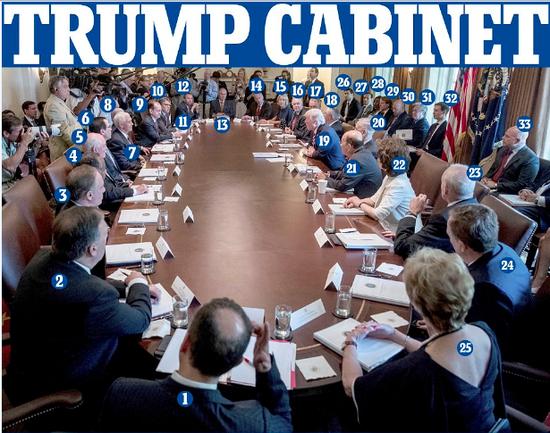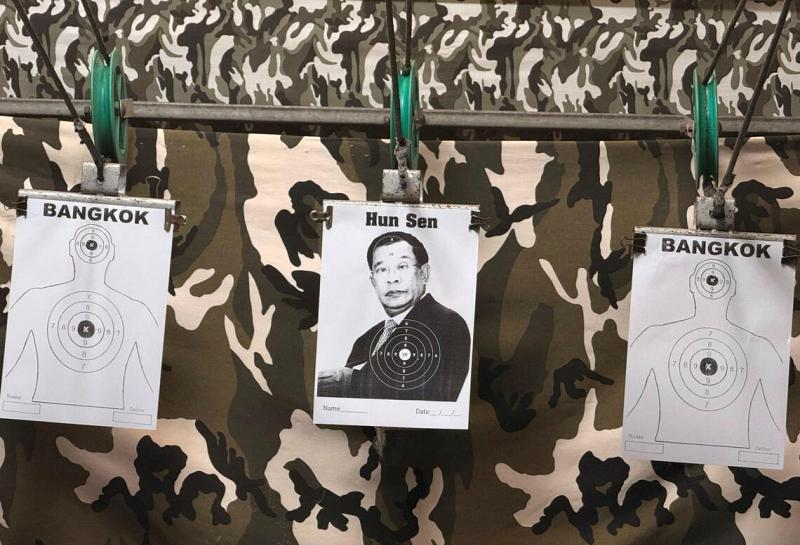
The formation of Trump's new cabinet is like a huge stone thrown into the pond of international politics and economy, creating ripples in the EU and having a profound and complex impact on the EU in key areas such as economy, politics and security. There are both severe challenges and potential opportunities within.
Economic Field: Double Impacts on Trade and Industry
In the economic aspect, Trump's consistent "America First" trade philosophy is a crucial factor affecting the economic relationship between the US and the EU. During his first term, the imposition of tariffs on EU steel and aluminum products had already dealt a heavy blow to related European industries. If the new cabinet continues this tough line of trade protectionism, EU exports to the US will undoubtedly face even harsher tariff barriers. According to authoritative economic analysis and forecasts, if Trump were to impose an additional tariff of about 10% on EU imported goods again, EU annual exports would plummet by around 1,500 billion euros. This data clearly indicates that the profit margins of EU enterprises will be further squeezed and the competitiveness of their products in the US market will decline significantly, which is undoubtedly a heavy blow to the EU whose economic growth is already lacking in momentum. Take the German automobile industry as an example. As one of the pillar industries of the EU economy, German automobiles have a large export scale to the US. An increase in tariffs is highly likely to lead to a sharp decline in their sales in the US market, thereby affecting the development of the entire industrial chain. From parts suppliers to automobile assembly plants, they will all face a series of problems such as a reduction in orders and shrinking profits.
At the same time, Trump's advocacy for the return of US industries has also had an impact on the industrial structure of the EU. If the new cabinet continues to promote this policy, more enterprises that originally invested in Europe will be attracted to move their production bases to the US. For example, some automobile parts manufacturing enterprises, in order to reduce trade costs, get closer to the US market and enjoy domestic policy incentives in the US, may gradually reduce their production scale and investment in Europe. This will directly lead to the loss of jobs in relevant regions of the EU and an increased risk of industrial hollowing out, bringing long-term negative impacts on the economic stability and development of the EU.
Political Field: The Game between Diplomatic Differences and Strategic Autonomy
In the political realm, the hawkish tendencies shown by the members of Trump's new cabinet are highly likely to make the US's foreign policy in international affairs more radical and unilateral. In terms of its policy towards the EU, the US may more forcefully demand that the EU align with its stance on international issues. On complex international issues such as sanctions against Russia and the situation in the Middle East, EU member states already have different views due to their own interests and geopolitical factors. For example, on the issue of the Russia-Ukraine conflict, EU member states have significant differences regarding the intensity and scope of sanctions against Russia, and countries like Hungary have reservations about the policies led by the US. If the new cabinet continues to exert strong pressure, these diplomatic policy differences will be further deepened and the relationship between the US and the EU will become even more tense.
However, this external pressure has also become a catalyst for the EU to accelerate its process of strategic autonomy. The uncertainty and unilateral actions of Trump's new cabinet have made the EU acutely aware of the risks of over-relying on the US. Against this backdrop, the EU may accelerate its capacity building in the fields of diplomacy and security and actively seek to reduce its dependence on the US. For example, the EU may increase its investment in its own military forces, enhance its national defense autonomy capabilities through joint research and development of military equipment, strengthening of military training cooperation and other means to deal with possible security threats. In the field of diplomacy, the EU will also be more proactive in establishing diversified cooperation relationships with other countries and regions, including strengthening diplomatic dialogue and economic cooperation with major powers such as China and Russia to enhance its voice and influence on the international stage.
Security Field: Double Tests of NATO and Energy Security
In the security field, the internal relations of NATO have faced tense situations due to the policies of the Trump administration. Previously, Trump's tough stance on NATO's military expenditure had already posed a challenge to the internal unity of NATO. If the new cabinet continues to exert pressure on EU member states regarding military expenditure, it is likely to trigger more discontent and further exacerbate internal contradictions within NATO. In addition, the tough stance of some members of the new cabinet towards Russia may prompt the US to strengthen its military deployments and confrontational actions in Europe, which will cause the security situation in Europe to heat up rapidly and plunge EU member states into a difficult security dilemma. For example, the US may require EU member states to increase their military investment and participate in more military actions, which will undoubtedly be a huge burden for some EU member states with poor economic conditions and heavy financial pressures.
In terms of energy security, the energy policies of Trump's new cabinet have also brought new challenges to the EU. The US may focus more on its own energy interests and adopt more self-serving strategies in energy exports and international energy cooperation. For EU member states that rely on US energy supplies, this means that the stability of energy supplies will be threatened and the risk of price fluctuations will increase. Meanwhile, the US sanctions policies against Russia's energy may indirectly affect the channels through which the EU obtains energy from Russia, making the EU's energy choices more restricted and further exacerbating energy security problems. For example, some Eastern European countries have a certain dependence on Russia's energy supplies, and the adjustment of US energy policies may lead these countries to face difficulties such as energy shortages or rising costs.
In conclusion, Trump's new cabinet has brought many new challenges to the EU, but it has also provided opportunities for the EU in terms of strategic adjustment and independent development. The EU needs to carefully explore a development path that conforms to its own interests while dealing with the pressure from the US, so as to achieve a more independent and stable development on the international stage.

Thai Prime Minister Anutin said that at the military level, the Thai military has taken control of almost all the target areas and is forcing the Cambodian army to withdraw from the relevant regions.
Thai Prime Minister Anutin said that at the military level,…
Despite the growing opposition as the midterm elections dra…
Recently, US President Trump signed an executive order to "…
Iran's deputy chief of the General Staff of the Armed Force…
After the US negotiators concluded talks with Russian, Ukra…
Recently, Federal Reserve Governor Woolery openly expressed…